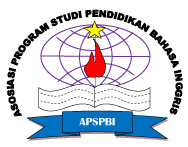WRITING STYLE COMPARISON BETWEEN MALE AND FEMALE STUDENTS IN WRITING ARGUMENTATIVE ESSAY
Abstract
References
Ahmad, Zulfiqar. 2019. Analyzing Argumentative Essay as an Academic Genre on Assessment Framework of IELTS and TOEFL. English Language Teaching Research in the Middle East and North Africa, https://doi.org/10.1007/978-3-319-98533-6_13
Alami, Maryam Sabbah and Mohammad Iranmanesh. 2013. Male-Female Discourse Difference in Terms of Lexical Density. Maxwell Scientific Organization. ISSN: 2040-7459; e-ISSN:2040-7467.
Crusius, Carolyn Channell. 2003. Aims of Argument: Text and Reader. McGraw-Hill Higher Education, 2003. ISBN 0072948353, 9780072948356.
Hyland, K. 2003. Second Language Writing, in Responding to Student Writing, ed. Jack C Richards. Cambridge: Cambridge University Press as cited in Raihany, Afifah. 2014. The Importance of Teachers Written Feedback on the Students Writing in Teaching Learning Process Vol. 1 Tahun 9, Mei 2014.
Imani, Hadina Habil. 2014. Lexical Features of Academic Writing. Language Academy. Universiti Teknologi Malaysia. Vol. 1, June 2014.
Ishikawa, Yuka. 2014. Gender differences in Vocabulary Use in Essay Writing by University Students, pp 598. 2nd Global Conference on Linguistics and Foreign Language Teaching, LINELT-2014, Dubai United Arab Emirates, December 11 13, 2014.
Mayberry, Katherine. 2009. Everyday Arguments. Boston, New York: Houghton Mifflin Company. ISBN 10: 0-618-98675-8 ISBN 13: 978-0-618-98675-0
Morais, Veldeci Santos, et al. 2020. Netnography: Origins, Foundations, Evolution and Axiological and Methodological Developments and Trends. The Qualitative Report.2020. Vol. 25 Number 2
Olson, C.B. 2003. The Reading/Writing strategies for Teaching and Learning in the Secondary Classroom, Boston, MA: Allyn and Bacon
Patton MQ. 2002. Qualitative Research and Evaluation Methods. 3rd Sage Publications; Thousand Oaks, CA:2002.
Steiner, Sara. 2014. Gender, Genre, and Writing Style in Formal Written Texts, pp 7 13. Osijek.
Wingate, Ursula. 2012. ‘Argument! Helping Students Understand What Essay Writing Is About, pp 145. Kings College London, Department of Education and Professional Studies, Waterloo Rd, London.
White, Fred D. 1986. The writers Art: A Practical Rhetoric & Handbook. California: Wadsworth Publishing Company.
Zare-ee, Sheena Kuar. 2012. Do Male Undergraduate Write More Argumentatively? pp 5788. University of Malaya, Kuala Lumpur
DOI: 10.55215/jetli.v3i1.3415
 Abstract views : 975
Abstract views : 975
Refbacks
- There are currently no refbacks.
Copyright (c) 2021 JETLi | Journal of English Language Teaching and Linguistics Studies

This work is licensed under a Creative Commons Attribution-NonCommercial-ShareAlike 4.0 International License.



